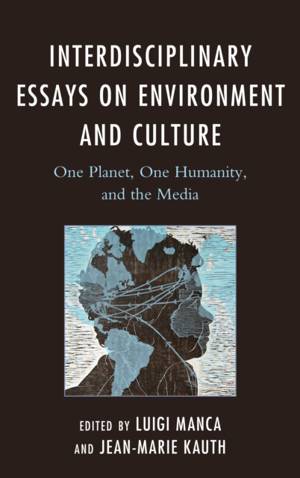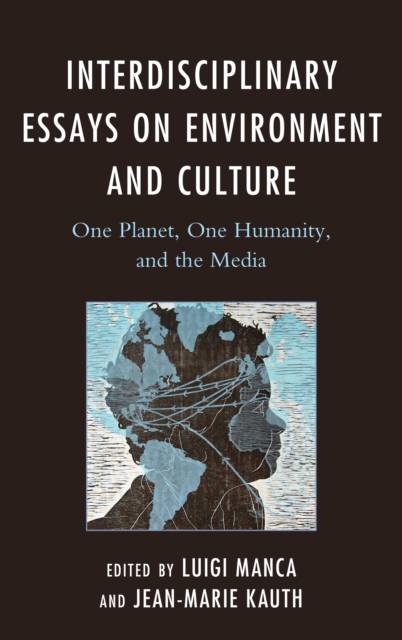
- Afhalen na 1 uur in een winkel met voorraad
- Gratis thuislevering in België vanaf € 30
- Ruim aanbod met 7 miljoen producten
- Afhalen na 1 uur in een winkel met voorraad
- Gratis thuislevering in België vanaf € 30
- Ruim aanbod met 7 miljoen producten
Zoeken
Interdisciplinary Essays on Environment and Culture
One Planet, One Humanity, and the Media
€ 242,95
+ 485 punten
Omschrijving
This is a collection of essays about the media, the environment, and the whole of humanity at the brink of extinction. As the demands of overpopulation and of an unsustainable consumer economy dry up existing natural resources and destroy vital ecosystems that we need to survive, the corporate-controlled media saturate worldwide audiences with a barrage of hypnotic images and narratives to stimulate over-consumption and to distract us from the consequences of rampant consumerism, while remaining silent about the systematic destruction of the environment and our future. Academicians from the across the sciences, the social sciences, the arts, and the humanities engage in an interdisciplinary discussion informed by a vision of an interconnected humanity and focused on the role of the media in forging public discourse. Contributors to the collection argue that today's media are failing humanity. Rather than providing pictures of reality on which the world's citizens can act, the corporate-controlled media are widely used as instruments of commercial and political propaganda, creating an immense web of images and narratives that their creators know to be not true--fabrications designed to sell, to manipulate, in a sense to enslave worldwide audiences. At the core of the discussion in this book is a utopian vision of one unified humanity--billions of people whose destinies and dreams are imbricated and interdependent, and who share the same world, the same habitats. It is a vision of a world that cherishes diversity but is also united--a world where our differences are no longer a cause for conflict and where separate countries or separate ethnic or religious communities no longer have to compete or wage war to exploit available resources. As extensions of humans, the media can be instruments of salvation instead of destruction, liberation instead of oppression. But first, we must recognize the challenges we face.
Specificaties
Betrokkenen
- Uitgeverij:
Inhoud
- Aantal bladzijden:
- 370
- Taal:
- Engels
- Reeks:
Eigenschappen
- Productcode (EAN):
- 9781498528900
- Verschijningsdatum:
- 24/12/2015
- Uitvoering:
- Hardcover
- Formaat:
- Genaaid
- Afmetingen:
- 157 mm x 231 mm
- Gewicht:
- 861 g

Alleen bij Standaard Boekhandel
+ 485 punten op je klantenkaart van Standaard Boekhandel
Beoordelingen
We publiceren alleen reviews die voldoen aan de voorwaarden voor reviews. Bekijk onze voorwaarden voor reviews.










